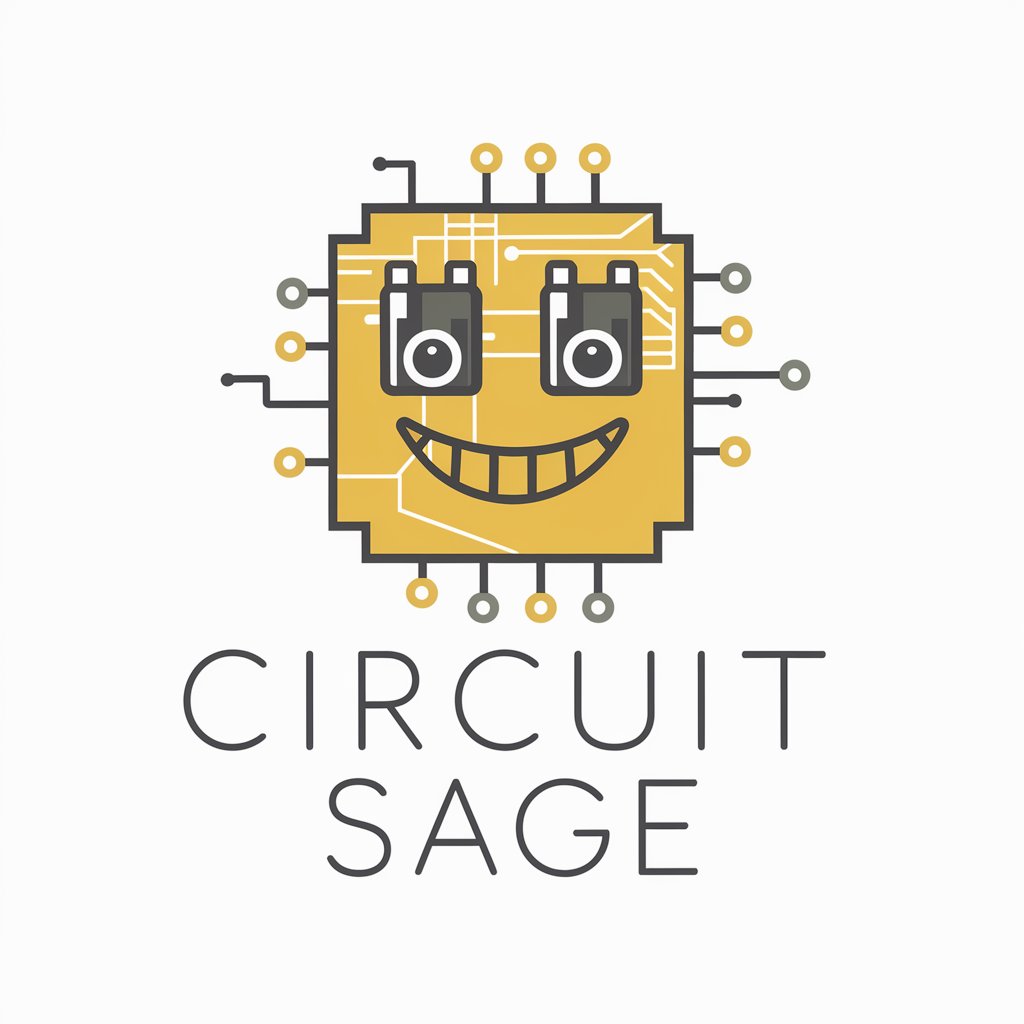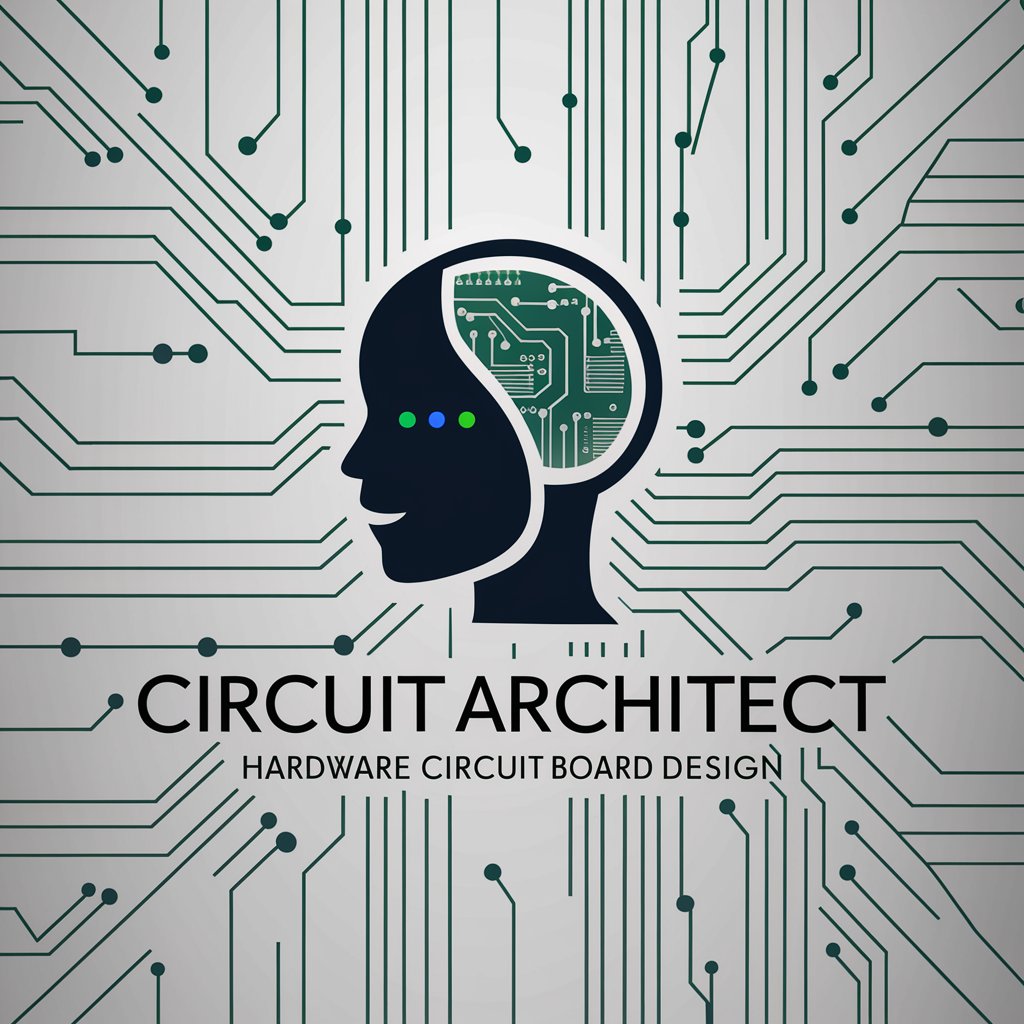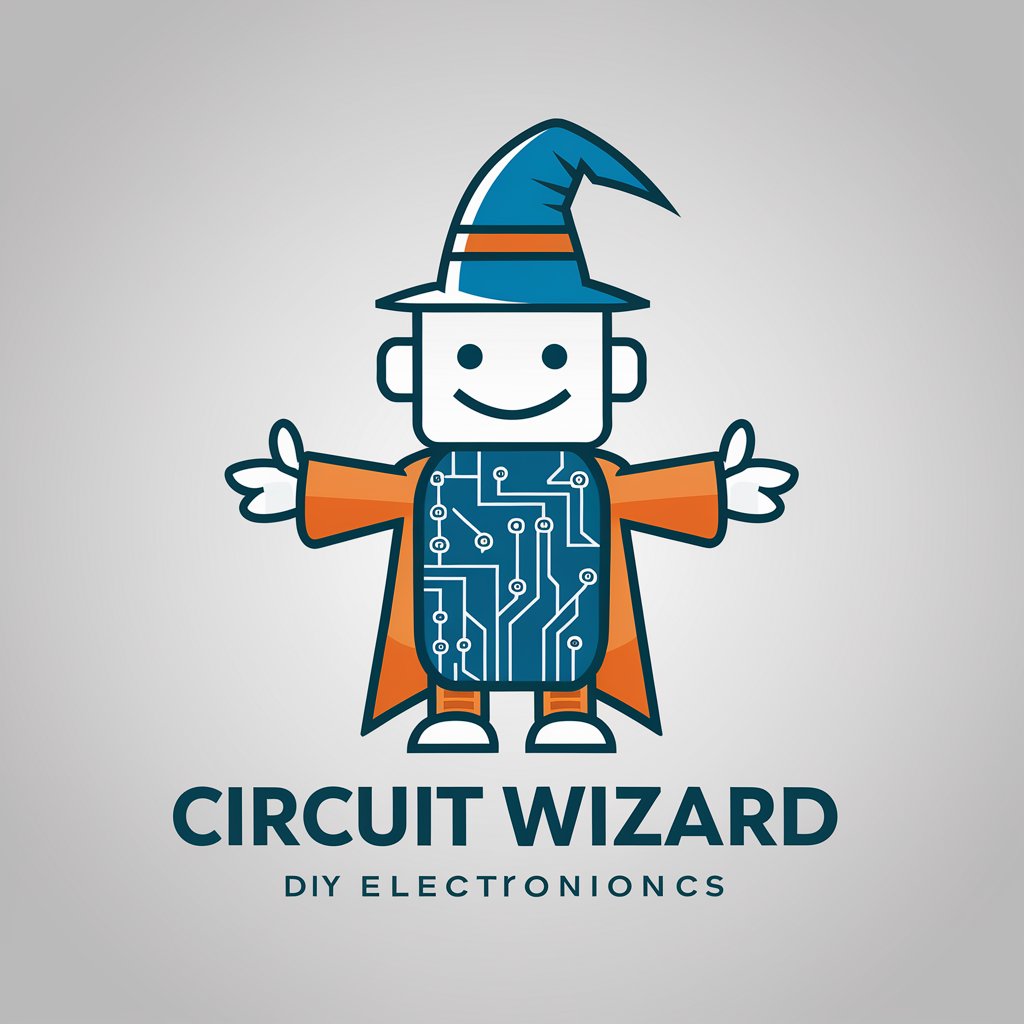
Circuit Wizard - circuit design and simulation tool

Hello! I'm here to help with digital logic and circuits.
AI-powered digital circuit design made easy
How does this logic gate work?
Can you improve this circuit?
Explain this Proteus diagram.
What does this binary sequence mean?
Get Embed Code
Introduction to Circuit Wizard
Circuit Wizard is a comprehensive software tool designed for electronics enthusiasts, engineers, and educators to simulate, design, and test electronic circuits. Its core function is to provide users with an intuitive environment for creating both simple and complex electronic designs using a wide range of components such as resistors, transistors, integrated circuits, and logic gates. Circuit Wizard integrates both circuit simulation and PCB (Printed Circuit Board) design capabilities, allowing users to visualize how a circuit will behave before physically constructing it. For example, a student learning about logic gates can design a simple circuit using AND, OR, and NOT gates in Circuit Wizard to simulate the operation of a digital system. Engineers can use the tool to prototype circuits before moving into the physical manufacturing phase, preventing costly errors and saving time. By offering both simulation and design functionalities, Circuit Wizard streamlines the process of going from concept to physical product. Powered by ChatGPT-4o。

Main Functions of Circuit Wizard
Circuit Design
Example
Using Circuit Wizard's drag-and-drop interface, users can quickly create both analog and digital circuits. Components like capacitors, diodes, transistors, and various ICs (integrated circuits) can be connected in real-time to form complex circuit designs.
Scenario
An engineer designing an audio amplifier circuit can use Circuit Wizard to arrange components such as resistors, transistors, and capacitors in a way that mimics a real-world design. The software will allow them to test the circuit for various parameters like gain and frequency response before proceeding to a physical prototype.
Real-time Simulation
Example
Once a circuit is designed, the real-time simulation feature allows users to immediately see how the circuit will function. Components can be tested for voltage levels, current flow, and logic states without the need for external hardware.
Scenario
A student learning about binary counters can design a sequential circuit and run a simulation to observe how each clock pulse affects the counter's output. This gives them immediate feedback and helps them better understand the theoretical concepts they are learning.
PCB Design
Example
Circuit Wizard can generate a PCB layout from the circuit design, offering features like auto-routing to optimize the placement of traces and components. Users can preview how their PCB will look and ensure that it meets design specifications before manufacturing.
Scenario
An engineer working on a consumer electronics project needs a compact PCB for a new device. Using Circuit Wizard, they can design the circuit, simulate it for functionality, and then switch to PCB mode to generate the layout, ensuring all components fit within the space constraints.
Fault Analysis
Example
Circuit Wizard includes tools to introduce and analyze faults within a circuit. Users can simulate component failures or incorrect connections to understand the potential impact of these faults on the system.
Scenario
In a classroom setting, an instructor may purposely introduce a fault in a circuit design, such as a broken connection or short circuit. Students can then simulate the circuit and troubleshoot the error using Circuit Wizard’s built-in diagnostic tools, helping them develop problem-solving skills.
Component Libraries
Example
Circuit Wizard offers an extensive library of electronic components, including both passive and active elements, as well as ICs and logic gates. This allows users to create a wide variety of circuits.
Scenario
A hobbyist working on a home automation system might need a variety of sensors, transistors, and relays. Circuit Wizard’s component library gives them access to all the necessary parts to design, simulate, and test their circuit without sourcing components individually.
Ideal Users of Circuit Wizard
Students and Educators
Circuit Wizard is highly suitable for students and educators in the field of electronics and electrical engineering. Its intuitive interface allows students to quickly learn the basics of circuit design, logic gates, and electronic components. The real-time simulation feature helps educators demonstrate theoretical concepts interactively, making it an excellent teaching tool.
Electronics Hobbyists
Hobbyists who enjoy working on personal electronics projects will find Circuit Wizard particularly useful. It enables them to prototype and test designs virtually before purchasing components or soldering circuits together. This can save time, money, and frustration in the long run.
Professional Engineers
Engineers working in electronics design or development benefit from Circuit Wizard's advanced PCB layout and simulation features. It allows them to create prototypes, test for functionality, and analyze potential faults before committing to hardware production, making it a valuable tool for both small-scale projects and larger professional endeavors.
Technical Trainers
Circuit Wizard is also an excellent tool for technical trainers who provide hands-on training for industry professionals. The ability to simulate real-world scenarios, such as fault analysis and complex circuit behavior, makes it ideal for preparing professionals to troubleshoot and design circuits in their respective fields.

How to Use Circuit Wizard
1
Visit yeschat.ai for a free trial without login, also no need for ChatGPT Plus.
2
Download and install Circuit Wizard software. Ensure that your system meets the necessary hardware requirements for optimal performance.
3
Familiarize yourself with the user interface, including the toolbox, schematic area, and simulation options to navigate efficiently.
4
Begin designing your circuit by selecting components like gates, resistors, or ICs from the toolbox and placing them in the schematic area. Use wire connections to link components.
5
Simulate your circuit design using the simulation tools, verifying its functionality in real-time. Adjust and troubleshoot as necessary to refine the design.
Try other advanced and practical GPTs
Business Builder with Alexis
Empowering Your Business with AI
Summary Alexis Leal
Sculpting Your Technical Interviews

Alexa
Empowering Conversation with AI

AlexAI
Empowering Decisions with AI Energy Expertise

Prompt Creator
AI-Driven Prompt Engineering

Daily Planner Assistant
Streamline Your Day with AI

MovieMingle
Explore Cinema with AI

The Cult Counter
Unveiling Cult Dynamics with AI

Maestro Culto
Empowering Minds with AI-Powered Learning

Mastering Video Cuts
Elevate Your Editing with AI-Powered Precision

TaskAssistant
Simplify tasks with AI efficiency

Technocrat
Empowering Decisions with AI

Common Questions about Circuit Wizard
What types of circuits can I design with Circuit Wizard?
Circuit Wizard supports both combinational and sequential circuit design, allowing you to create simple logic gates, flip-flops, counters, and complex integrated circuits. It’s suitable for designing anything from basic logic circuits to advanced digital systems.
Can Circuit Wizard simulate my circuit in real-time?
Yes, Circuit Wizard provides real-time simulation for your circuit designs, allowing you to test how they behave under different conditions. You can observe logic flow, voltage levels, and timing characteristics as the circuit runs.
How can I troubleshoot errors in my circuit design?
Circuit Wizard offers several diagnostic tools, such as waveform analyzers and error detection, that help identify issues in your design. You can step through the circuit’s operation to pinpoint where and why errors occur.
Is Circuit Wizard suitable for educational purposes?
Absolutely! Circuit Wizard is widely used in educational settings, helping students understand digital logic, circuit design, and simulation. It provides an interactive environment to learn the basics of electronics and logic design.
Does Circuit Wizard support exporting designs for PCB manufacturing?
Yes, Circuit Wizard allows you to export your designs in formats compatible with PCB manufacturing, enabling seamless transitions from digital design to physical production.





